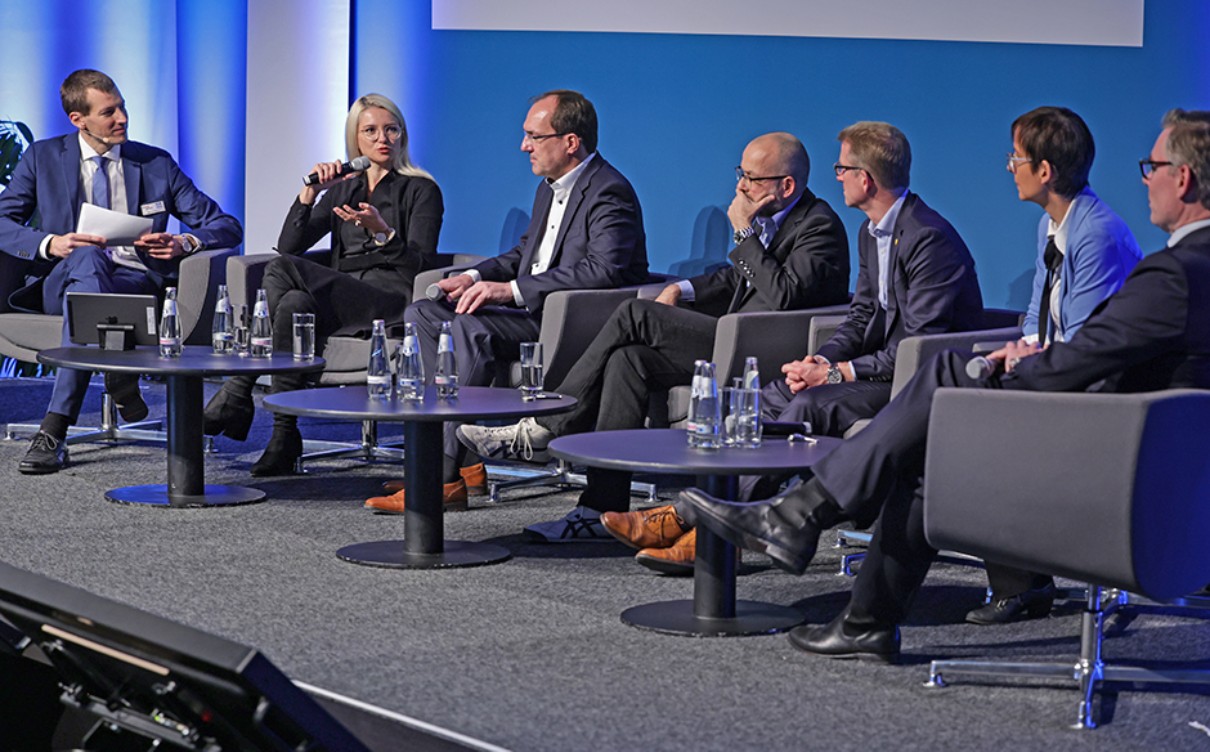Page content
How door-to-door service can succeed
"Mobility as a service for citizens - sustainable, smart and available everywhere" was the theme of this year's International Bus Forum, which was organized by the German Transport Forum (DVF).
Micro-mobility solutions such as sharing kick scooters or bicycles can complement classic public transport and provide better connections for the last mile – if they are included in the concepts of local public transport authorities and integrated in terms of tariffs and sales, said Jochen Schlei, CEO of SRP Consulting. Sebastian Storch, Associate Director at Umlaut, added that in order to improve the customer experience, more investment in digital infrastructure is needed. Funds should not only flow into the organisation of such models in the "backend". Roland Werner, Senior Director Public Policy at Uber, advocated the inclusion of his company's ride services as a last-mile feeder to public transport.
In order to make public transport a "sustainable, smart and available everywhere citizen service", it is also necessary to modernise the operation and sales of conventional transport modes. Rolf Erfurt, director of operations at Berliner Verkehrsbetriebe (BVG), said that as part of the conversion of his company's bus fleet to e-buses, the company plans to use ten depots instead of the current six. This involves 1,700 buses in the city, added Meike Niedbal, State Secretary at the Berlin Senate Department for Mobility. Berlin is also considering the use of 50-metre-long trams to increase capacity, said Guido Schötz, a staff member at the Berlin Senate Administration.
Ideas for more attractiveness
Anna-Theresa Korbutt, Managing Director of the Hamburg Transport Association (HVV), stressed that to improve the attractiveness of public transport, it is highly important to make it easily accessible. If there were a nationwide ticket – the German Federal and regional governments are currently negotiating such a ticket – many products of the current regional associations would become obsolete. Meike Jipp from the German Aerospace Centre demonstrated with the help of analyses of the temporary 9 Euro ticket, which was also valid all over Germany, that inexpensive and easy-to-understand offers in public transport reach a broader target group than regular subscription offers.
Various companies presented product pitches on concrete developments for attractive public transport. Alexander Stucke from QUANTRON AG presented his company's overall solution for conversion to alternative drives – also available for smaller bus operators. Stefanie Böger from the HÜBNER Group showed a steering system for multi-articulated high-capacity buses for up to 300 passengers. ZF Group's Werner Engel presented an autonomous vehicle which is currently under development by his company - however, he believes it will be some time before the technology is used on a large scale.

Representatives from transport companies, research and administration at the International Bus Forum

